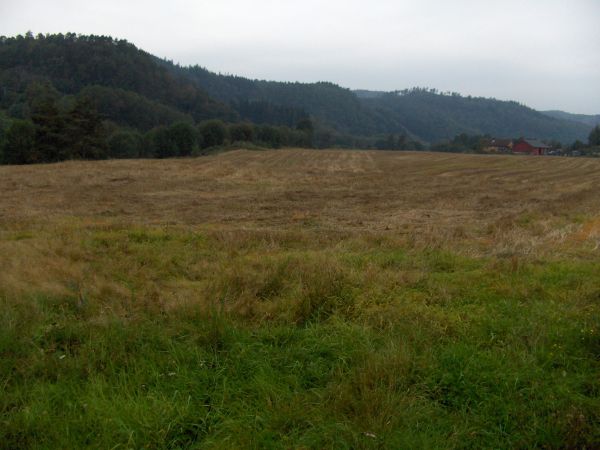Wednesday 20 September 2006

|
Pic of the day: This was the image that came to my mind for this text, and I had to walk almost half an hour away to photograph it. I think it represents the passage of time or some such. ClarityI recently saw some truly horrible writing on the Web. This should not surprised anyone if I just surfed randomly, but I was actually directed to it by a member of a community that is fairly elite. In fact, several people expressed admiration for this book. But what I saw was a vague haze of paranoid fearmongering. Paranoia tends to be, by nature, hazy: If you knew the threats very specifically, you could counter them, and you could easily show the threat to others and they would support you. So paranoia and a foggy mind fit like hand and glove. I know that feeling, from dreams and fever. I don't like to see it in writing, though. The spelling was at least as good as mine, and the grammar passable as well. And yet the writing did not really seem like an attempt to communicate with humans. There was an abundance of words but very little meaning. What content there was, was mostly emotional. But beside the paranoia, as mentioned, the one thing that struck me was the lack of clarity. Of course, had it been clear, there is a good chance it would not have been taken seriously. Like a dream that makes sense in the fog of sleep but looks ridiculous in the clear morning light. I felt ill at ease about my acquaintance being taken in by such a text. But it also made me think about clarity and writing. For the rest of this little essay, that is what I will write about. ***"The obscurely said is the obscurely thought" said the Swedish writer and poet Esaias Tegnér. I sometimes say this to myself: I have written an entry, or at least part of it, and then I realize that it lacks clarity. Not just clarity of expression, but clarity of thought. It struck me that there are indeed two different forms of clarity in writing, although they can be related. There is the overly complex sentence, long and filled with archaic polysyllables, or composed of several sentences strung together without a pause to draw your breath, or sliced, as it were, like a salami by interruptions (not to mention parentheses). These things can make a text hard to read. But this hardship can be overcome by reading it again. And for the highly intelligent reader, it is barely a hurdle. He or she can assemble the meaning in their mind on the fly. (And let us face it, if you were not more intelligent than most, you would not even have found your way here.) So I don't feel too bad about decorating my text this way. But there is another murkiness: When you assemble the meaning, you find it lacking. The message itself either does not exist, or is vague. At the center, instead of a revelation, you find a platitude. It is like reading a novel where the characters are described in exquisite detail, their relations drawn with sensibility and style, their emotions and attitudes vivid and lifelike. And then they're all run over by a bus. (Or their ship collides with an iceberg, perhaps.) Of this second type of haziness there may again be two kinds, I think. It could be mere shallowness. The writer has no more content than this. He has not thought more deeply, but just vaguely discerned something and then hurried to share it with the world. But it may also be that there is something, a treasure trove that is buried too deep, and he lacks the tools of mind or language to bring it up in the clear daylight. You don't need to be stupid to lack such tools of the mind. Different languages have different vocabularies. A tribal language from the tropical desert probably has no word for snow, and the old Norse had no word for cactus either. It stands to reason that a culture will likewise have problems talking about other things it has little experience with. In western civilization, this includes much of our inner life. Also a highly individualist culture may have vague ideas about society in some ways. But even apart from this, there remains one question. Do I have clarity of mind? Do I see clearly with my mind's eye? If not, then all the tricks and tools cannot help me. If what I try to describe is still mostly hidden in the murky soil of the subconscious, any description is bound to falter. This happens sometimes to me, and then I stop writing. I may need to think about the matter more. Or I may need to give it time to work its way to the surface. I may even need to let the mind's water clear, to let sink to the bottom the mud that my mental flailing has churned up. But sometimes I upload it anyway, because I'm sleepy and my journal is a week behind... |
Yesterday <-- This month --> Tomorrow?